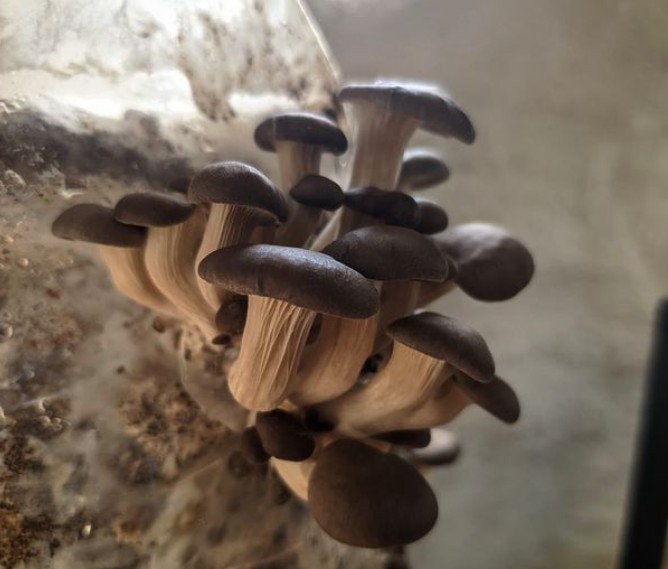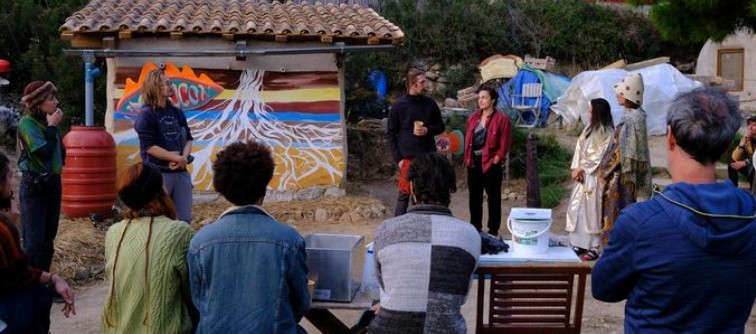The use of natural spaces and the apprehension of food resources were key issues in the Montpellier region. These challenges raised a profound question: How could humans inhabit, produce, and manage land with the living beings that inhabit it? This included plants, animals, young people, families, and the memory carried by a place. Catfarm Education aimed to address these climatic and societal challenges by mobilizing young people through the Mycocon project, a small oyster mushroom farm.
This project was primarily co-financed with “Montpellier Capital of European Culture 2028”. It had two complementary angles: an artistic and cultural angle around the construction for Montpellier 2028, and a functional and productive angle for the development of the region’s food resilience

The idea was to bring together a panel of local and international actors to create a prototype of a mini mushroom farm (≤5m², within legal limits), 100% dismountable, biodegradable, and respectful of living beings. The goal was to offer a space for exchanging perspectives and knowledge about land use while constructing a building that promoted local food and the identity of the Montpellier region. This building was made from earth, wood, hemp, local stones, lime, and was integrated into the ecosystem with the help of our partner “Global Forest” (Climbing plants, fruit trees, beehives…). Young people, associations, and professionals all came together as the builders of this project.



The entire design phase was co-created by young eco-builders, a contracted architect (specialized in earth constructions), and local and European artists. Thus, the conceptualization was the result of multiple professional minds, different sensibilities, and various regions.

The prototype served as an enviable alternative example of ecological and artistic mini-construction, inspiring other associations, eco-locations, farmers, households, and local officials to deepen their reflection on the use of natural and agricultural spaces.
The prototype served as an enviable alternative example of ecological and artistic mini-construction, inspiring other associations, eco-locations, farmers, households, and local officials to deepen their reflection on the use of natural and agricultural spaces.

The prototype result was celebrated in November 2023 with an inauguration, tasting, and immersive dissemination evening guided by our partner Valparaiso, taking the public on a journey through its light shows and artistic narration. We invited regional residents, local and territorial institutions, our partners, and the Oasis Colibri network of French eco-locations to present the prototype (3D plans, open-source construction documents). Ideally, we launched replication projects and partnerships for the prototype in the fall of 2024.



We established connections with local eco-locations wanting to participate in the project, particularly incubator structures (third places…) to propagate the mushroom farm prototype results and continue its development both locally and globally. Our partner “Oasis Fontmarie” was among those interested in a possible adapted implementation and/or sharing of the results within its network.
We particularly addressed eco-locations and citizen collectives because we believed that micro-activities of cultivating oyster mushrooms on recycled coffee grounds and the logic of short food supply chains were particularly suited to these virtuous structures, weaving the territory together!
 , feel free to get our booklet as a reference!
, feel free to get our booklet as a reference! Please contact us by mail before dropping by!
community@catfarm.net
hello@catfarm.net
Catfarm
699 Cabrolous
34560 Poussan
France
Catfarm Education
IBAN: FR76 4255 9100 0008 0249 9621 927
BIC: CCOPFRPPXXX